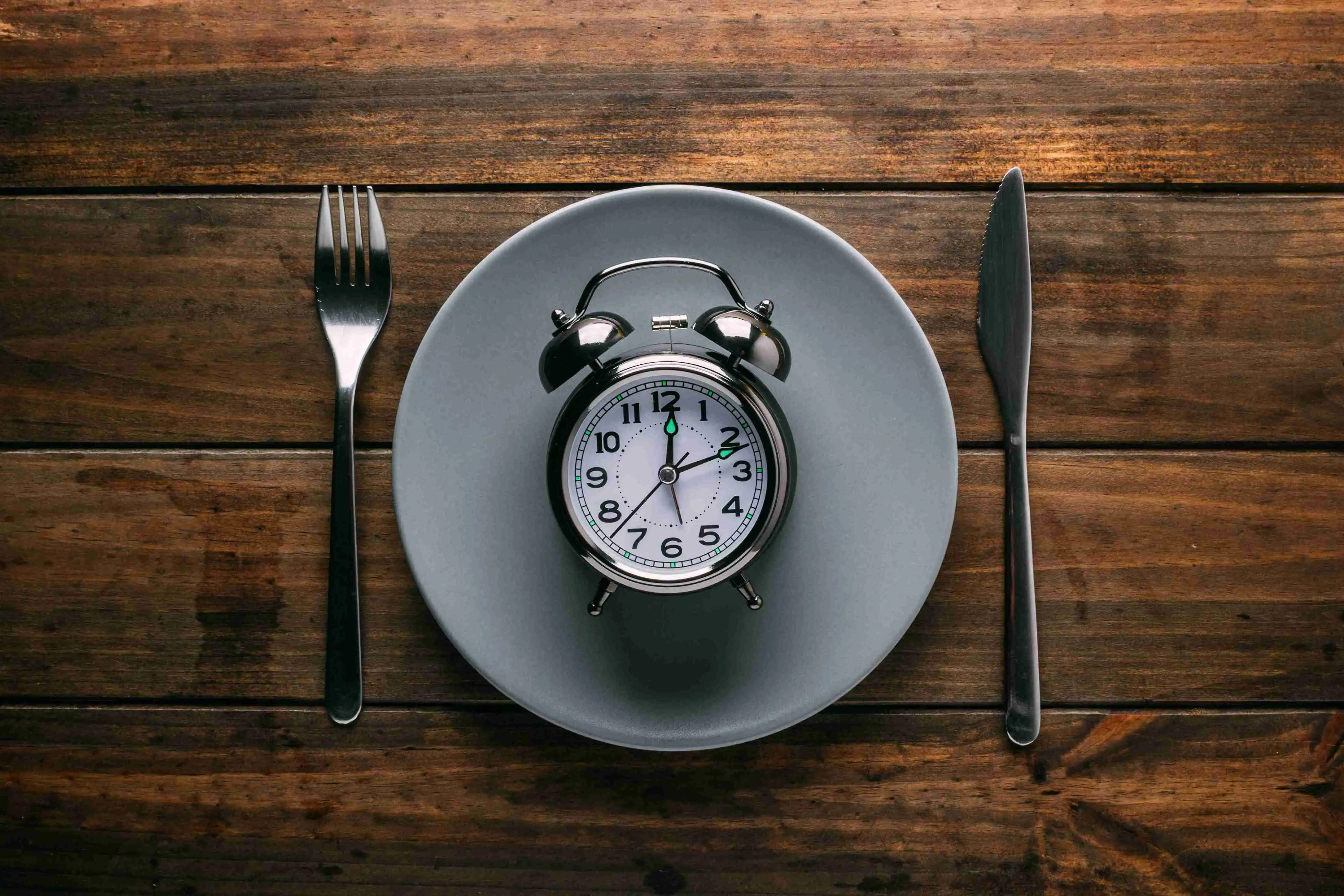Nutrition and sleep stand out as two fundamental pillars that significantly influence our physical and mental health. While nutrition provides the essential nutrients our bodies need to function effectively, sleep allows for the restoration and rejuvenation necessary for maintaining overall health.
In this article, we go through understanding the relationship between nutrition and sleep, which aims to uncover how dietary choices can impact sleep quality and vice versa, offering practical insights for achieving a balance.
Importance of Nutrition
Nutrition plays a crucial role in maintaining overall health and well-being. It provides the body with essential nutrients needed for energy, growth, and repair. A balanced diet supports the immune system, enhances cognitive function, and helps maintain a healthy weight.
Additionally, good nutrition is important for ensuring quality sleep, as certain nutrients can influence sleep patterns and quality. Proper nutrition and adequate sleep together contribute significantly to physical health and mental health, setting the foundation for a productive and energetic life.
How Nutrition Affects Sleep Quality

Nutrition plays a significant role in influencing sleep quality. Here's a step-by-step breakdown of how different aspects of nutrition can impact your sleep:
The Relationship Between Nutrition and Sleep
The connection between nutrition and sleep is rooted in the complex interplay of hormones, neurotransmitters, and metabolic processes within the body. Certain nutrients play crucial roles in regulating sleep-wake cycles, promoting relaxation, and supporting the production of sleep-inducing compounds.
Foods That Promote Sleep
Certain foods contain nutrients that can help improve sleep quality by influencing the production of sleep-related hormones and neurotransmitters:
- Tryptophan-Rich Foods: Tryptophan is an amino acid that the body converts into serotonin and melatonin, both of which are important for sleep. Foods rich in tryptophan include turkey, chicken, milk, cheese, nuts, and seeds.
- Magnesium and Calcium: These minerals help the body relax and can improve sleep quality. Good sources include leafy greens, almonds, and dairy products.
- Complex Carbohydrates: Foods like whole grains, quinoa, and sweet potatoes can increase the availability of tryptophan in the brain, promoting better sleep.
The Impact of Caffeine on Sleep
Caffeine is a well-known stimulant that can significantly affect sleep patterns:
- Disruption of Sleep Cycles: Consuming caffeine, especially in the afternoon or evening, can interfere with the body's natural sleep-wake cycle, delaying sleep onset and reducing overall sleep duration.
- Impact on Deep Sleep: Caffeine can decrease the quality of deep sleep, leading to a less restful night and increased daytime fatigue.
Alcohol and Sleep
While alcohol might initially help some people fall asleep faster, it can negatively affect overall sleep quality:
- Disruption of REM Sleep: Alcohol consumption can reduce the duration of REM (Rapid Eye Movement) sleep, which is crucial for cognitive functions like memory and learning.
- Frequent Awakenings: Alcohol can lead to more frequent awakenings during the night, resulting in fragmented sleep and reduced restorative sleep.
Hydration and Sleep
Proper hydration is important for maintaining good sleep quality:
- Dehydration Effects: Being dehydrated can lead to dry mouth and nasal passages, which may cause discomfort and disrupt sleep.
- Timing of Fluid Intake: Drinking too much liquid before bed can lead to frequent trips to the bathroom during the night, disrupting sleep continuity.
Macronutrients and Sleep
Macronutrients, including carbohydrates, proteins, and fats, play a significant role in influencing sleep quality. Here's how each macronutrient affects your sleep:
- Carbohydrates: Complex carbohydrates, such as whole grains, can promote the production of tryptophan and serotonin, aiding in better sleep. However, consuming simple carbohydrates, like refined sugars, can lead to energy crashes and disrupt sleep patterns.
- Proteins: Proteins rich in tryptophan, such as turkey, milk, and nuts, can help increase melatonin production and improve sleep quality.
- Fats: Healthy fats, like those found in avocados, nuts, and fatty fish, can support the absorption of fat-soluble vitamins essential for sleep, such as vitamin D.
Eating Before Bed

Incorporating certain foods into your evening routine can help promote better sleep. Here are some sleep-friendly options:
The Impact of Late-Night Eating on Sleep and Digestion
Eating before bed can have various effects on sleep and digestion:
- Sleep disruption: Consuming large meals or certain types of food can lead to discomfort, making it harder to fall asleep. Spicy or fatty foods, in particular, can cause indigestion or heartburn.
- Weight Gain: Eating late at night, especially high-calorie snacks, may contribute to weight gain due to reduced metabolic activity during sleep.
- Digestive Issues: Lying down soon after eating can cause acid reflux or bloating, affecting sleep quality.
Best Foods for Sleep
Incorporating certain foods into your evening routine can help promote better sleep:
- Almonds: These are rich in magnesium, which can improve sleep quality.
- Bananas: These contain potassium and magnesium, which help relax muscles.
- Oatmeal: A source of melatonin, a hormone that regulates sleep.
- Chamomile Tea: Known for its calming effects, which can help induce sleep.
- Kiwi: High in serotonin and antioxidants, which may improve sleep onset and duration.
Learn More: Healthy Bedtime Snacks.
Foods to Avoid for Better Sleep
While some foods can promote better sleep, others, like those that include alcohol and caffeine, should be avoided, as explained above. There are other foods to avoid when sleep-deprived. Here are some foods to avoid, especially close to bedtime:
Spicy and Fatty Foods
Eating spicy and fatty foods can lead to indigestion and heartburn. These digestive issues often cause discomfort, which can disturb your sleep and make it difficult to get a restful night's sleep.
Sugary Snacks
Consuming sugary snacks can lead to spikes and crashes in your blood sugar levels. These fluctuations can result in restlessness, making it challenging to maintain a steady sleep cycle.
Night Eating Syndrome and Its Nutritional Implication
Night-eating syndrome is a condition characterized by a delayed pattern of food intake, where individuals consume a significant portion of their daily calories during the night. Symptoms of this syndrome include a lack of appetite in the morning, eating most of the day's food after dinner, and waking up at night to eat.
Strategies to Manage Night Eating Syndrome
- Regular Meal Schedule: Establish a consistent eating routine to help regulate hunger and fullness cues.
- Mindful Eating: Pay attention to hunger signals and avoid eating out of boredom or stress.
- Stress Management: Incorporate stress-reduction techniques like meditation or yoga to reduce nighttime anxiety.
- Professional Support: Seek guidance from a healthcare provider or nutritionist for personalized strategies and support.
Timing of Meals for Optimal Sleep
Timing your meals can significantly impact the quality of your sleep. Here are some guidelines to consider for optimal sleep:

Importance of Meal Timing
The timing of your meals can significantly impact your sleep quality. While some feel sleepy right after eating, others may experience discomfort and difficulty falling asleep after consuming a large, heavy meal close to bedtime.
Additionally, consuming certain foods too late in the evening may interfere with your body's natural sleep-wake cycles.
Learn More: Why Do People Get Sleepy After Eating.
Night Eating and Its Effects
Eating before bed, particularly consuming high-calorie or high-fat foods, can disrupt your sleep patterns and lead to poor sleep quality. This is because your body has to work harder to digest these foods, which can interfere with the natural sleep-promoting processes.
It's generally recommended to avoid eating large meals within 2-3 hours of bedtime. Instead, opt for lighter, sleep-friendly snacks if you need something to eat before bed.
Common Nutritional Deficiencies Affecting Sleep
Nutritional deficiencies can have a profound impact on sleep quality. Some common deficiencies that can contribute to sleep issues include:
Magnesium Deficiency
- Role in Sleep: Magnesium is crucial for the regulation of neurotransmitters that promote sleep, such as GABA. It helps calm the nervous system and can improve sleep quality.
- Symptoms: Insomnia, restless legs, and muscle cramps can be signs of magnesium deficiency.
- Sources: Leafy greens, nuts, seeds, and whole grains are good sources of magnesium.
Vitamin D Deficiency
- Role in Sleep: Vitamin D is involved in the regulation of sleep-wake cycles and has been linked to sleep disorders.
- Symptoms: Deficiency can lead to sleep disturbances and daytime fatigue.
- Sources: Sun exposure, fatty fish, fortified dairy products, and supplements.
Iron Deficiency
- Role in Sleep: Iron is essential for the production of hemoglobin and oxygen transport, affecting energy levels and sleep.
- Symptoms: Restless legs syndrome and fatigue are common symptoms associated with iron deficiency.
- Sources: Red meat, beans, lentils, and fortified cereals.
Ways To Improve Sleep And Nutrition
Lifestyle factors can significantly impact both nutrition and sleep, two critical components of overall health and well-being. Here's a step-by-step breakdown of how various elements of lifestyle can affect these areas:
Exercise and Sleep
Regular physical activity plays a significant role in enhancing sleep quality. It achieves this by reducing stress levels and helping to regulate the sleep-wake cycle. Engaging in exercise can lead to more restful and uninterrupted sleep.
However, it's important to note that intense exercise performed close to bedtime can have the opposite effect, potentially disrupting sleep patterns.
Stress Management and Sleep
Chronic stress is a common disruptor of sleep, primarily due to its ability to increase cortisol levels in the body. Elevated cortisol can make it challenging to both fall asleep and stay asleep throughout the night.
To combat these types of anxiety and stress, incorporating stress management techniques such as mindfulness, meditation, and breathing exercises can be highly effective.
Daily Dietary Habits
A balanced diet rich in essential vitamins and minerals is crucial for maintaining overall health and can significantly improve sleep quality. Consuming whole foods and staying hydrated are key components of a healthy diet.
Additionally, it is advisable to avoid caffeine and heavy meals close to bedtime, as these can interfere with the ability to fall asleep.
FAQs
Can specific foods cure sleep disorders?
While certain foods can promote better sleep, it's important to note that they are not a cure for sleep disorders. If you are experiencing persistent sleep issues, it's recommended to consult with a healthcare professional for proper evaluation and treatment.
Is it better to eat a large meal or several smaller meals for better sleep?
We generally recommend avoiding large, heavy meals close to bedtime, as they can disrupt sleep patterns. Instead, opt for smaller, nutrient-dense meals and snacks throughout the day, and leave at least 2-3 hours between your last meal and bedtime.
Can supplements replace a healthy diet for improving sleep?
No, supplements should never be used as a substitute for a balanced, nutrient-rich diet. While certain supplements may help address specific deficiencies or support sleep, a healthy diet should always be the foundation for optimal sleep and overall well-being.
How long does it take for dietary changes to impact sleep quality, and how does diet affect sleep??
The timeline for seeing improvements in sleep quality after making dietary changes can vary from person to person. However, we generally recommend giving it at least a few weeks to allow your body to adjust and for the beneficial effects to become noticeable.
Can caffeine consumption earlier in the day affect sleep at night?
Yes, caffeine has a relatively long half-life, which means it can remain in your system for several hours. Consuming caffeine, even earlier in the day, can potentially interfere with your ability to fall asleep and disrupt sleep quality at night.
Conclusion
All in all, by making a mindful balance between diet and sleep, we can enhance our energy levels, cognitive function, and emotional resilience. The journey to better health is a continuous process of learning and adaptation, and understanding the relation between food and sleep.
Helene Josephine Duun
Helene Josephine Duun is a medical anthropologist who specializes in public health research and communication. Always seeking a deeper understanding of how cultural values and practices influence health outcomes, she co-designs solutions with diverse groups to form collaborative partnerships that are responsive to changing needs. As an advocate for holistic health literacy, she also raises awareness of the vital role of quality sleep in overall health and well-being.


